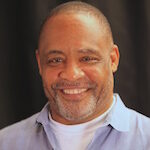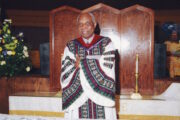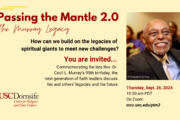This post originally appeared in the Los Angeles Sentinel.
Online giving is one of the fastest-growing methods of giving to churches. Online giving is a way of donating money via the internet and cell phone.
Online giving is a safe, secure, easy and a swift method of tithing and giving offerings to God’s church. And it works.
Many church members are addicted to writing checks, touching cash, lifting coins and filling out donation envelopes. The church may consider starting a 12-step program for people afraid of giving online.
Some persons truly enjoy placing money in the offering tray, but they don’t give to the church unless they are physically in church. This addiction to writing checks and touching cash is crippling the financial stability of the church. There is a cure: online giving.
One of the best means of giving is online. Church members may give 24-hours a day and seven days a week. Online giving is not limited to a member being physically present at church. They give via the Internet online, swipe a square to give or give by cell phone. It is as easy as writing an email or using a cell phone.
A church needs the following items: Square credit card reader, iPad, Wi-Fi access, church website, video cameras to shoot the worship services, an online streaming company, a PayPal Account or an equivalent system to receive funds and method of recording transactions. The church then trains its members to give online. The minister’s pitch includes an appeal to donors watching online and in the pews to give by swiping a credit card through Square or going online to give. The church may choose to host stewardship training sessions for online giving.
Twenty-five percent of Christ Our Redeemer AME Church gives online. There are some churches that receive 75 percent of the offerings online. Online giving increases church giving, and it helps the church better manage cash flow.
Let’s get over the fear of the Internet. Online giving works.
Click here for more information about the Murray Center’s Leadership and Financial Literacy Programs.
Mark Whitlock is a contributing writer for the USC Center for Religion and Civic Culture.






